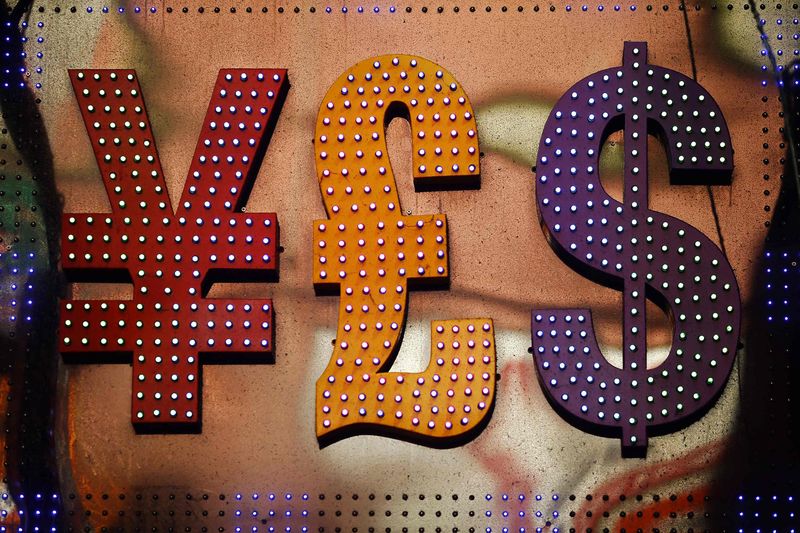By Wayne Cole
SYDNEY, Nov 16 (Reuters) - The Australian and New Zealand dollars joined a global risk rally on Monday as investors chose to focus on the future prospects of a COVID-19 vaccine rather than the ever-expanding tally of new cases now.
The Aussie added 0.3% to $0.7291 AUD=D3 , again nearing a recent nine-week peak of $0.7340.
The kiwi dollar climbed 0.6% to $0.6883 NZD=D3 and back toward the 19-month high of $0.6915 hit last week. It was also within striking distance of a $0.6938 top from March 2019, a break of which would be bullish technically.
Analysts at Westpac saw scope for the kiwi to reach $0.7400 or $0.7500 given the domestic economy was enjoying a robust recovery from its coronavirus lockdown, including a fresh surge in house prices.
"The RBNZ has been surprised by this economic strength, which in turn has reduced the magnitude of further stimulus required," they wrote in a note.
"Markets have responded by pricing out rate cuts, pushing term yields, and thus yield differentials, higher."
The Reserve Bank of New Zealand (RBNZ) wrongfooted many last week by playing down the chance of negative rates.
That, combined with a global rally in risk assets, has seen New Zealand 10-year yields NZ10YT=RR spike to 0.865% from just 0.58% at the start of this month.
Australian yields have also climbed, but not by nearly as much. The 10-year AU10YT=RR was last at 0.899%, compared to 0.83% at the start of November.
The divergence is partly due to the intervention of the Reserve Bank of Australia (RBA) which recently outlined plans to buy A$100 billion of longer-dated bonds over six months.
It is set to buy A$3.5 billion of debt on Monday, in part to keep three-year yields AU3YT=RR near a target of 0.10%. They were last at 0.13%, having briefly been as high as 0.15%.
Such purchases are also helping absorb a flood of new supply as Australia borrows to fund coronavirus stimulus. The government's finance office plans to sell A$6 billion of May, 2041 bonds this week in a syndicated tap.
"The last time, domestic buyers bought just over 70% of the issuance," noted ANZ rate strategist Hayden Dimes. "With yields at these longer dated tenors now trading at a positive spread to U.S. Treasuries, we think demand from offshore might be a little stronger."
"Regardless, we think demand will be strong."
